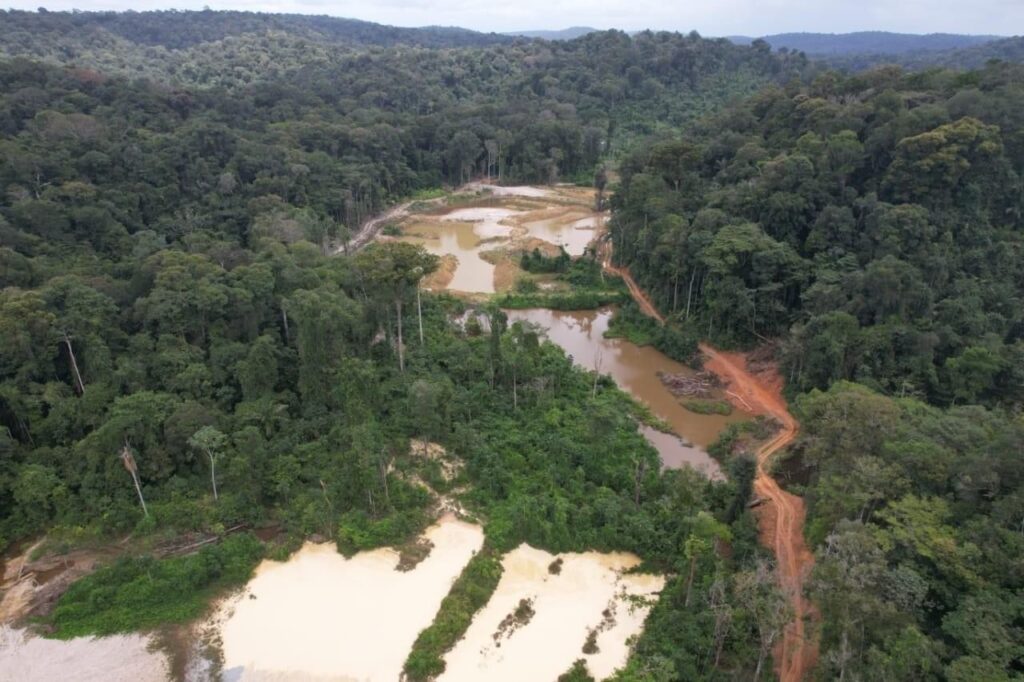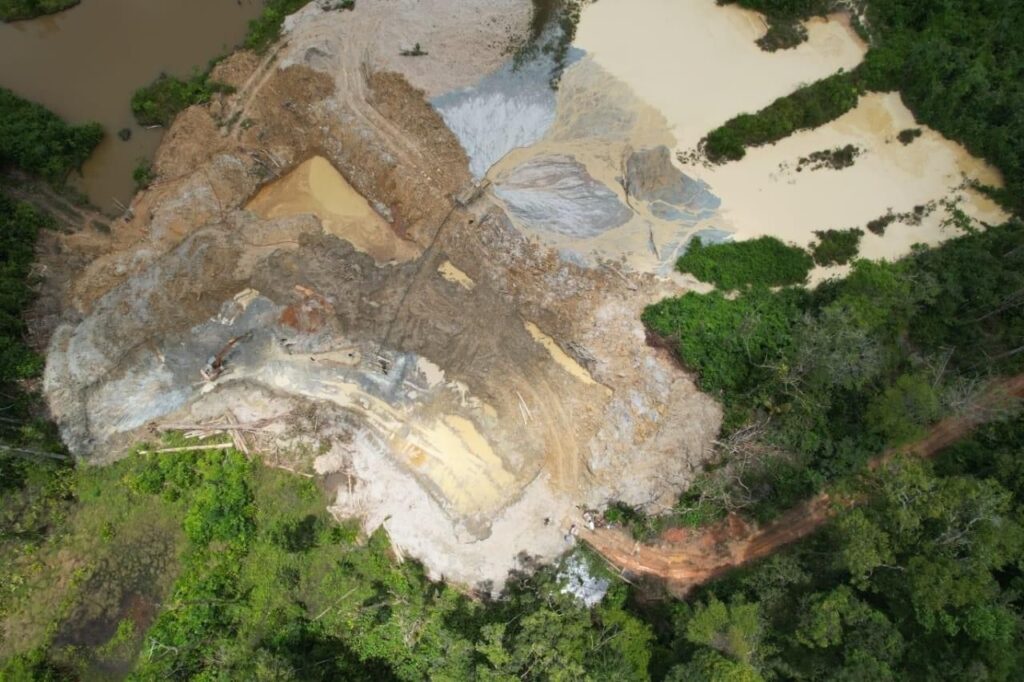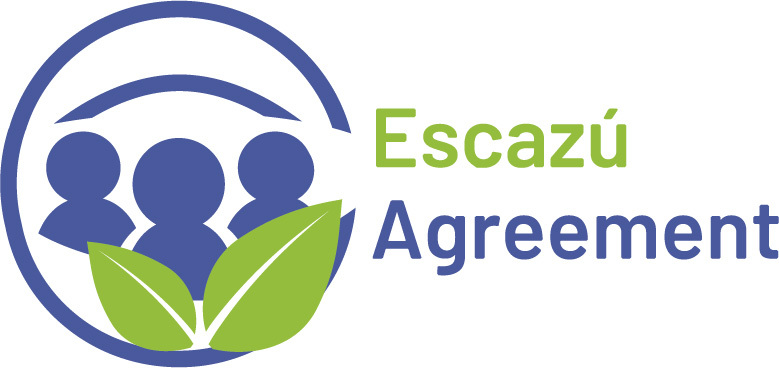April 21st 2021 marks a historical day in the context of environmental protection and human rights. On this day, the Regional Agreement on Access to Information, Public Participation and Justice in Environmental Matters in Latin America and the Caribbean, better known as the Escazú Agreement, was entered into force.
Fifteen countries from the “Latin America and the Caribbean” region have ratified the agreement; seven of which are Caribbean countries.
These are Antigua and Barbuda, Belize, Grenada, Guyana, Saint Vincent and the Grenadines, Saint Kitts and Nevis and Saint Lucia. Countries like Suriname, Trinidad and Tobago, Jamaica, Bahamas and Barbados have yet to do so.

This historical treaty recognizes, protects, and promotes the rights of all environmental defenders including civil society organizations, non-governmental organizations and individuals, especially groups often at the forefront of climate action: women, indigenous- and tribal communities.
Furthermore, the rights of the public to environmental information are also protected. Thus, this international treaty can give a voice to the voiceless on environmental matters, as well as offer protection to those on the frontlines.
So why has Suriname not adopted this agreement yet? Jupta Itoewaki, A Wayana Indigenous leader and activist in the field of environmental protection tells her story on how she became an enemy of the state all because of her activism.
Enemy of the state due to environmental activism
In 2019, Itoewaki said she made a statement at the United Nations Permanent Forum on Indigenous Issues (UNPFII), where she talked about the government’s role in prioritizing making profits at the cost of destroying the rainforest in the living communities of Indigenous peoples.
She also spoke up about the role of several large NGOs who claim to champion Environmental protection whilst behind closed doors it is all a huge scheme to make buckets of money that only high-ranking NGO-workers profit from.

Shortly after the statement, Itoewaki was told to retract her words. She says the “command” came from a figure who had self-interests at stake during that cabinet. Itoewaki refused to do When she returned to Suriname, the activist was seen as an enemy of the state. She was routinely threatened and was even forced to move to another city in order to ensure the safety of her family.
“There are a number of stories I can tell you where I was threatened or obstructed in speaking up about the significant damage to the environment that is occurring in and around our villages.“ Itoewaki further says.
The Lawa-area is a rural area in the deep south-east part of Suriname where the Wayana Indigenous Peoples have been living for centuries.
For the past years, illegal-gold mining activities have been undertaken on a large-scale in the area. According to Itoewaki, some years ago, illegal-gold miners decided to start operating along a creek near the villages Kawemhakan and Kumakapan.
The burial site of an old Wayana healer was also located nearby and was considered a sacred area.
Villagers had noticed the water in the creek turning brown and cloudy. Upon further inspection, they discovered gold-mining activities were being executed. Furthermore, a large forested area was cut down.
Itoewaki was a young activist at the time and she as well as other villagers were outraged and called upon the Committee that regulates the gold mining sector in Suriname, Ordening Goudsector (OGS).
“We thought the committee would help us protect our area since the gold-mining activities were illegal and destroying our creeks and forest.” Instead they decided to protect the illegal gold-miners and not the environment, while villagers were being threatened and intimidated into retreat”, says Itoewaki.

It is a scientific fact that forests slow the rate of climate change by reducing the amount of Carbon Dioxide (CO2) in the atmosphere. This is due to the fact that trees absorb more carbon dioxide (CO2) than they release.
As the primary driver of climate change is the over-abundance of carbon dioxide in the atmosphere, deforestation directly leads to human-induced global warming. According to various scientists, deforestation accounts for 10% of global warming.
Impact Escazú Agreement on national legislation
Gina Griffith, lecturer of Environmental Law at the Faculty of Law (Anton de Kom University), says that Suriname currently does have legislation that cover some aspects of the Escazú Agreement. For example, the Environmental Framework Act contains rules and regulations on the publication of environmental impact analyses, permits and contaminated areas.
However, other aspects of the treaty such as the protection for human right defenders will have to be formulated and new national legislation will be needed, Griffith explains.
She further says that it would be best for Suriname to pass the act on Freedom of Information so that all information is accessible to the public.
“If Suriname ratifies this treaty, it will have to comply with the obligations arising from the treaty. This means that there must be rules on public access to environmental information and protection of people who fight for the environment.”, Griffith concludes.
Ritesh Sardjoe, executive-director of the state’s Environmental department, was asked if the government has plans to ratify the agreement. And if so, to indicate the steps that have already been taken so far to finalize these plans. Sardjoe vaguely states that the government had sent a request regarding the agreement to the department of environment and that the department in turn provided advice in the matter. However, no clear or tangible information was provided by Sardjoe.
Patrick Kensenhuis, member of the Environment committee in The National Assembly committee, says he had not yet even seen the treaty. Upon reviewing the agreement, he indicates the necessity for Suriname to ratify this agreement in order to protect fundamental human rights. Kensenhuis also calls upon the government to formally submit the agreement to the parlement, so that the process can be started for Suriname to sign onto the treaty.
Climate Litigation
Griffith further shone a light on the consequences for Suriname if the country ratified the agreement but failed to adhere to its contents. What happens with environmental treaties is that countries have to report on the progress of implementation in their country. And often assessments are also done to determine how far countries are with implementation.”, she says.
She further explains that in recent years, a new movement has been underway in which citizens are suing their state in national courts for not complying with international agreements. A movement that specifically deals with climate change and which is called climate litigation. In doing so, citizens are taking their governments to court and demanding that they do something about climate change. For instance, Melinda Janki is a lawyer who caught the attention of the Caribbean and set an example when it comes to climate change litigation amidst the offshore oil development in Guyana.. She led a monumental case that asserts that oil exploration and production led by U.S. oil major ExxonMobil off the South American country’s coast is unconstitutional.
Nicole Leotaud, one of the six representatives of the public for the Escazú Agreement, finds it encouraging that seven Caribbean governments have already signed on as Parties to the Escazú Agreement. “We are advocating that other governments step up and also demonstrate their commitment to good environmental governance”, she says. According to Leotaud, it’s critical that all parties continue to raise awareness about this important agreement and build capacity of Caribbean civil society to access information, participate in decisions that affect the environment, and seek justice to protect our right to a healthy environment as a core human right.
This story was published by Srherald.com with the support of the Caribbean Climate Justice Journalism Fellowship, which is a joint venture between Climate Tracker and Open Society Foundations.